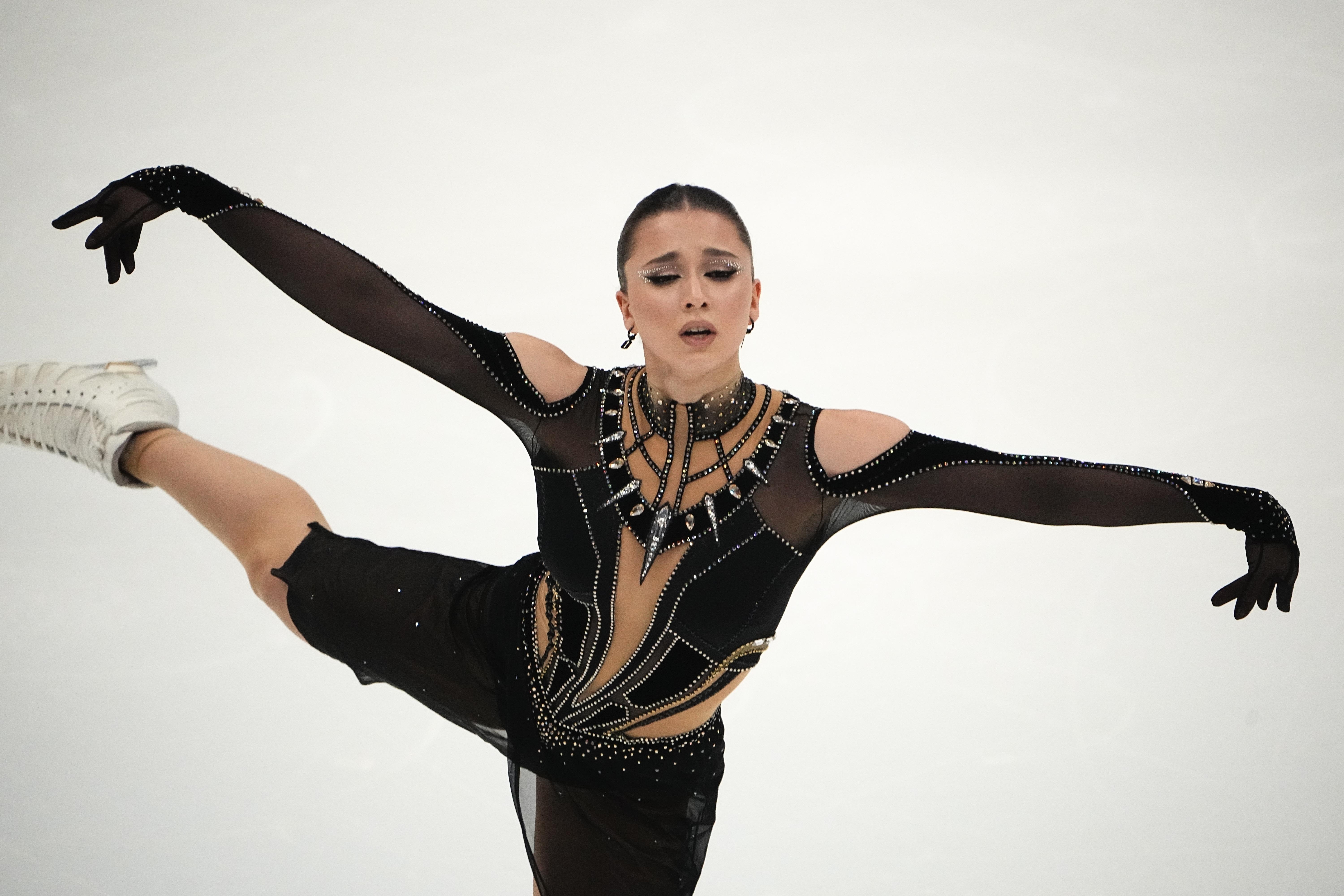 Russian Kamila Valieva competes in the women's free skate program during the figure skating competition at the 2023 Russian Figure Skating Grand Prix, the Golden Skate of Moscow, at Megasport Arena in Moscow, Russia, Nov 26, 2023. (PHOTO / AP)
Russian Kamila Valieva competes in the women's free skate program during the figure skating competition at the 2023 Russian Figure Skating Grand Prix, the Golden Skate of Moscow, at Megasport Arena in Moscow, Russia, Nov 26, 2023. (PHOTO / AP)
Banned Russian figure skater Kamila Valieva blamed her positive doping test on a strawberry dessert prepared by her grandfather on a chopping board he used to crush his medication pills, the Court of Arbitration for Sport (CAS) said on Wednesday.
CAS published their Arbitral Award on Wednesday, setting out the reasons for the four-year doping ban handed down to Valieva in January.
CAS went on to say that as Valieva failed to establish that she did not commit the ADRV intentionally, and as the "No Significant Fault or Negligence" criterion was not met, there was no basis to treat her any differently from an adult athlete
The highest court in sport had found Valieva guilty of committing an anti-doping rule violation (ADRV), following the finding of Trimetazidine (TMZ) in a sample collected from her in December 2021, during the Russian National Championships.
READ MORE: Russia reacts strongly to four-year ban on Valieva for doping
CAS said that in her submissions, Valieva asserted that the prohibited substance entered her body through the consumption of the dessert prepared by her grandfather on a board he used to crush his pills containing TMZ.
"The CAS Panel determined that this explanation was not corroborated by any concrete evidence and that the Athlete was not able to establish that she had not committed the ADRV intentionally," CAS said.
READ MORE: Russian anti-doping body hopes for fair ruling in Valieva case
"From this basis, and according to the relevant rules, the status of “Protected Person” that the Athlete could enjoy before the CAS ad hoc Division at the time of the Olympic Winter Games 2022, because of her young age and on the basis of the limited evidence which was available at the very beginning of the case, was no longer applicable in her situation."
READ MORE: RUSADA files CAS appeal seeking 'proper result' for Valieva
CAS went on to say that as Valieva failed to establish that she did not commit the ADRV intentionally, and as the "No Significant Fault or Negligence" criterion was not met, there was no basis to treat her any differently from an adult athlete.
All of Valieva's competitive results since the date of the offence were voided, including the gold medal she helped the Russian Olympic Committee win in the team event at the 2022 Beijing Winter Games. Russia said it would appeal the decision to strip it of the medal.


